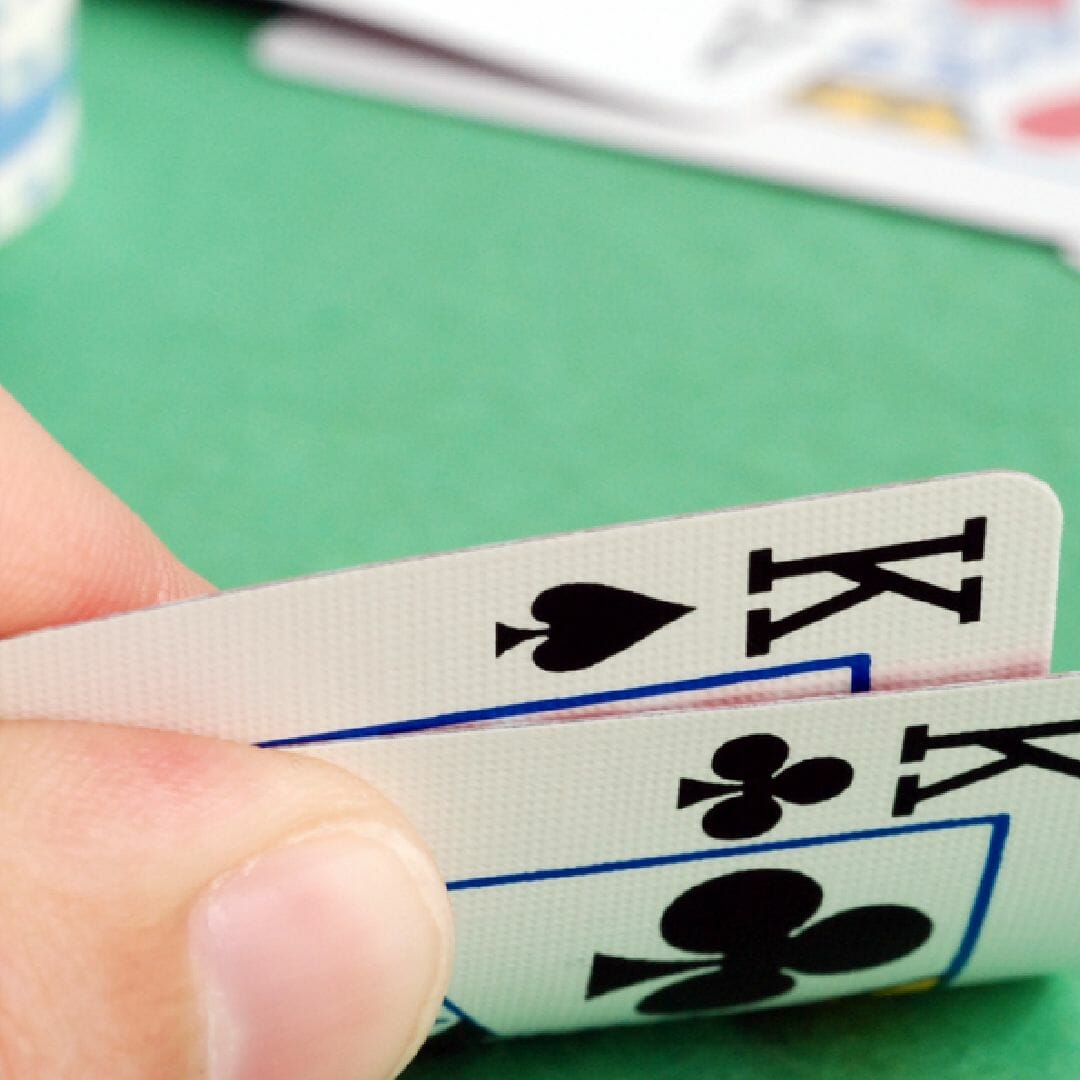
If you’ve been relying on an ABC poker strategy while playing online poker tournaments up until now, it’s time to up your game. A great way to do that is to delve into the various techniques of the experts, like ‘floating.’
But what exactly is floating in poker and how can it help you gain that all-important edge when playing poker games online? Read on for everything you need to know.
What Is ‘Floating’ in Poker?
In poker, the term ‘floating’ refers to a strategic move where a player calls a bet on one round with a relatively weak hand with the intention of bluffing or taking control of the pot on a later betting round. Many poker professionals employ this technique.
‘Floating’ is great to use when you suspect an opponent’s bet is a continuation bet, that is, a bet made after the flop by the preflop aggressor and you believe your opponent’s hand is weaker than they’re making it out to be.
Ultimately, ‘floating’ means capitalizing on the perceived weakness of your opponent’s continuation bet by calling the bet instead of raising or folding immediately. When you do this, your goal will be to gain control of the pot on a subsequent betting round, often by making a bluff bet when your opponent checks.
‘Floating’ is considered an expert technique because it calls for a solid understanding of your opponents’ betting styles and strategies. You also must have developed a strong sense of accuracy when it comes to ‘reading’ the strength of your opponents’ hands. If you manage to ‘float’ successfully, it can result in winning pots without necessarily having the best hand. But it can be risky if you don’t exercise careful judgment and timing.
Understanding ‘Floating’ Spots

You can ‘float’ at various stages of poker online games and tournaments, including preflop and postflop. Here’s what that could look like.
Preflop float
You’re in the big blind and the player in late position raises. You suspect they’re making a steal attempt and decide to call with a marginal hand, intending to take control of the pot on a later street if the flop appears favorable.
Flop float
You’re in the small blind and the preflop raiser makes what you believe to be a continuation bet after the flop. You suspect they actually have a weak hand and decide to call with a plan to bluff on the turn if they check.
Turn float
You’re in position and your opponent bets on the flop, but their bet sizing seems weak. You call with a mediocre hand, planning to seize the pot on the turn if they show signs of weakness.
River float
You’re out of position and your opponent has been consistently aggressive throughout the hand. They bet on the turn and you call with a medium-strength hand, intending to bluff if they check on the river.
These are just a few examples and ‘floating’ spots can occur in various situations depending on the dynamics, player tendencies and board texture. It’s important to analyze each hand individually and consider the specific circumstances before deciding to ‘float.’
Your ‘To Float or Not to Float’ Checklist
If you’re considering ‘floating,’ — here’s what to think about:
Opponent’s playing style
Are they a frequent bluffer or a tight player? Do they often make continuation bets?
Position
Floating is generally more effective when you have position on your opponent. Being in position allows you to gather more information and have greater control over the hand.
Board texture
Evaluate the texture of the flop, turn or river. Is it coordinated or uncoordinated? Are there potential draws or scare cards present? A board that’s unlikely to have helped your opponent’s hand increases the chances of a successful float.
Bet sizing
Consider the size of your opponent’s bet. A smaller bet can indicate weakness and may present a good opportunity to ‘float.’
Hand reading
Attempt to narrow down your opponent’s range based on their actions and the community cards. Do their betting patterns and previous actions suggest they might have a weak hand?
Stack sizes
Assess your and your opponent’s stack sizes. ‘Floating’ can be riskier if you have a short stack, as it may limit your ability to follow through with a bluff on later streets.
Table image
Consider your own table image. Your float may carry more credibility if you’ve been playing tight and are perceived as a conservative player.
Player history
Consider any previous encounters you’ve had with your opponent. Have they shown any patterns or tendencies in previous hands? Use this information to inform your decision.
‘Floating’ Mistakes To Avoid

Now that you have a good idea of when to ‘float,’ here are a few ‘floating’ don’ts:
‘Floating’ too often
‘Floating’ should be used selectively and only in situations where it’s likely to be profitable. Don’t ‘float’ just for the sake of ‘floating’ or to show off your bluffing skills.
‘Floating’ with weak holdings
While ‘floating’ involves calling with a weaker hand, it’s important to have some potential to improve or a legitimate chance of winning the pot. ‘Floating’ with extremely weak holdings that have no chance of improvement can lead to costly and unprofitable bluffs.
Ignoring opponent tendencies
This expert technique relies on accurately reading your opponents and their tendencies. At poker tournaments, failing to pay attention to your opponents’ playing styles and patterns can result in misjudging their hand strength and making incorrect ‘floating’ decisions.
Floating out of position
Floating is generally more effective when you have position on your opponent, as it gives you more control over the hand. Floating out of position can be riskier and limit your ability to extract value or execute successful bluffs on later streets.
Neglecting board texture
Ignoring the texture of the flop, turn or river can lead to misjudging the likelihood of your opponent having a strong hand or the potential for draws, diminishing the effectiveness of your ‘float.’
Play Poker Games Online at Borgata
Looking for one of the best online poker sites on which to float your boat? Choose Borgata Online. This platform is great for beginners who are still learning how to play poker and experts alike. Play competitive online poker tournaments, video poker and many other exciting online casino games, including live dealer casino games and online slots. Register when you’re ready to explore the full menu.
